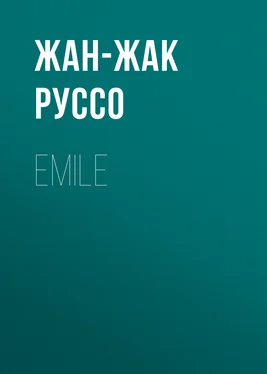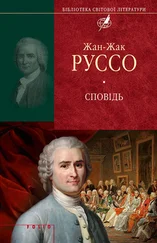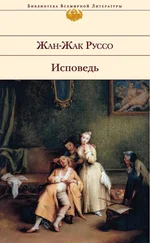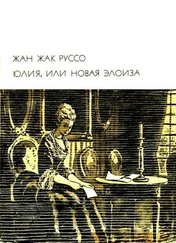Жан-Жак Руссо - Emile
Здесь есть возможность читать онлайн «Жан-Жак Руссо - Emile» — ознакомительный отрывок электронной книги совершенно бесплатно, а после прочтения отрывка купить полную версию. В некоторых случаях можно слушать аудио, скачать через торрент в формате fb2 и присутствует краткое содержание. Жанр: foreign_antique, literature_18, foreign_edu, на английском языке. Описание произведения, (предисловие) а так же отзывы посетителей доступны на портале библиотеки ЛибКат.
- Название:Emile
- Автор:
- Жанр:
- Год:неизвестен
- ISBN:нет данных
- Рейтинг книги:4 / 5. Голосов: 1
-
Избранное:Добавить в избранное
- Отзывы:
-
Ваша оценка:
- 80
- 1
- 2
- 3
- 4
- 5
Emile: краткое содержание, описание и аннотация
Предлагаем к чтению аннотацию, описание, краткое содержание или предисловие (зависит от того, что написал сам автор книги «Emile»). Если вы не нашли необходимую информацию о книге — напишите в комментариях, мы постараемся отыскать её.
Emile — читать онлайн ознакомительный отрывок
Ниже представлен текст книги, разбитый по страницам. Система сохранения места последней прочитанной страницы, позволяет с удобством читать онлайн бесплатно книгу «Emile», без необходимости каждый раз заново искать на чём Вы остановились. Поставьте закладку, и сможете в любой момент перейти на страницу, на которой закончили чтение.
Интервал:
Закладка:
But if you undertake a duty not imposed upon you by nature, you must secure beforehand the means for its fulfilment, unless you would undertake duties you cannot fulfil. If you take the care of a sickly, unhealthy child, you are a sick nurse, not a tutor. To preserve a useless life you are wasting the time which should be spent in increasing its value, you risk the sight of a despairing mother reproaching you for the death of her child, who ought to have died long ago.
I would not undertake the care of a feeble, sickly child, should he live to four score years. I want no pupil who is useless alike to himself and others, one whose sole business is to keep himself alive, one whose body is always a hindrance to the training of his mind. If I vainly lavish my care upon him, what can I do but double the loss to society by robbing it of two men, instead of one? Let another tend this weakling for me; I am quite willing, I approve his charity, but I myself have no gift for such a task; I could never teach the art of living to one who needs all his strength to keep himself alive.
The body must be strong enough to obey the mind; a good servant must be strong. I know that intemperance stimulates the passions; in course of time it also destroys the body; fasting and penance often produce the same results in an opposite way. The weaker the body, the more imperious its demands; the stronger it is, the better it obeys. All sensual passions find their home in effeminate bodies; the less satisfaction they can get the keener their sting.
A feeble body makes a feeble mind. Hence the influence of physic, an art which does more harm to man than all the evils it professes to cure. I do not know what the doctors cure us of, but I know this: they infect us with very deadly diseases, cowardice, timidity, credulity, the fear of death. What matter if they make the dead walk, we have no need of corpses; they fail to give us men, and it is men we need.
Medicine is all the fashion in these days, and very naturally. It is the amusement of the idle and unemployed, who do not know what to do with their time, and so spend it in taking care of themselves. If by ill-luck they had happened to be born immortal, they would have been the most miserable of men; a life they could not lose would be of no value to them. Such men must have doctors to threaten and flatter them, to give them the only pleasure they can enjoy, the pleasure of not being dead.
I will say no more at present as to the uselessness of medicine. My aim is to consider its bearings on morals. Still I cannot refrain from saying that men employ the same sophism about medicine as they do about the search for truth. They assume that the patient is cured and that the seeker after truth finds it. They fail to see that against one life saved by the doctors you must set a hundred slain, and against the value of one truth discovered the errors which creep in with it. The science which instructs and the medicine which heals are no doubt excellent, but the science which misleads us and the medicine which kills us are evil. Teach us to know them apart. That is the real difficulty. If we were content to be ignorant of truth we should not be the dupes of falsehood; if we did not want to be cured in spite of nature, we should not be killed by the doctors. We should do well to steer clear of both, and we should evidently be the gainers. I do not deny that medicine is useful to some men; I assert that it is fatal to mankind.
You will tell me, as usual, that the doctors are to blame, that medicine herself is infallible. Well and good, then give us the medicine without the doctor, for when we have both, the blunders of the artist are a hundredfold greater than our hopes from the art. This lying art, invented rather for the ills of the mind than of the body, is useless to both alike; it does less to cure us of our diseases than to fill us with alarm. It does less to ward off death than to make us dread its approach. It exhausts life rather than prolongs it; should it even prolong life it would only be to the prejudice of the race, since it makes us set its precautions before society and our fears before our duties. It is the knowledge of danger that makes us afraid. If we thought ourselves invulnerable we should know no fear. The poet armed Achilles against danger and so robbed him of the merit of courage; on such terms any man would be an Achilles.
Would you find a really brave man? Seek him where there are no doctors, where the results of disease are unknown, and where death is little thought of. By nature a man bears pain bravely and dies in peace. It is the doctors with their rules, the philosophers with their precepts, the priests with their exhortations, who debase the heart and make us afraid to die.
Give me a pupil who has no need of these, or I will have nothing to do with him. No one else shall spoil my work, I will educate him myself or not at all. That wise man, Locke, who had devoted part of his life to the study of medicine, advises us to give no drugs to the child, whether as a precaution, or on account of slight ailments. I will go farther, and will declare that, as I never call in a doctor for myself, I will never send for one for Emile, unless his life is clearly in danger, when the doctor can but kill him.
I know the doctor will make capital out of my delay. If the child dies, he was called in too late; if he recovers, it is his doing. So be it; let the doctor boast, but do not call him in except in extremity.
As the child does not know how to be cured, he knows how to be ill. The one art takes the place of the other and is often more successful; it is the art of nature. When a beast is ill, it keeps quiet and suffers in silence; but we see fewer sickly animals than sick men. How many men have been slain by impatience, fear, anxiety, and above all by medicine, men whom disease would have spared, and time alone have cured. I shall be told that animals, who live according to nature, are less liable to disease than ourselves. Well, that way of living is just what I mean to teach my pupil; he should profit by it in the same way.
Hygiene is the only useful part of medicine, and hygiene is rather a virtue than a science. Temperance and industry are man's true remedies; work sharpens his appetite and temperance teaches him to control it.
To learn what system is most beneficial you have only to study those races remarkable for health, strength, and length of days. If common observation shows us that medicine neither increases health nor prolongs life, it follows that this useless art is worse than useless, since it wastes time, men, and things on what is pure loss. Not only must we deduct the time spent, not in using life, but preserving it, but if this time is spent in tormenting ourselves it is worse than wasted, it is so much to the bad, and to reckon fairly a corresponding share must be deducted from what remains to us. A man who lives ten years for himself and others without the help of doctors lives more for himself and others than one who spends thirty years as their victim. I have tried both, so I think I have a better right than most to draw my own conclusions.
For these reasons I decline to take any but a strong and healthy pupil, and these are my principles for keeping him in health. I will not stop to prove at length the value of manual labour and bodily exercise for strengthening the health and constitution; no one denies it. Nearly all the instances of long life are to be found among the men who have taken most exercise, who have endured fatigue and labour. [Footnote: I cannot help quoting the following passage from an English newspaper, as it throws much light on my opinions: "A certain Patrick O'Neil, born in 1647, has just married his seventh wife in 1760. In the seventeenth year of Charles II. he served in the dragoons and in other regiments up to 1740, when he took his discharge. He served in all the campaigns of William III. and Marlborough. This man has never drunk anything but small beer; he has always lived on vegetables, and has never eaten meat except on few occasions when he made a feast for his relations. He has always been accustomed to rise with the sun and go to bed at sunset unless prevented by his military duties. He is now in his 130th year; he is healthy, his hearing is good, and he walks with the help of a stick. In spite of his great age he is never idle, and every Sunday he goes to his parish church accompanied by his children, grandchildren, and great grandchildren."] Neither will I enter into details as to the care I shall take for this alone. It will be clear that it forms such an essential part of my practice that it is enough to get hold of the idea without further explanation.
Читать дальшеИнтервал:
Закладка:
Похожие книги на «Emile»
Представляем Вашему вниманию похожие книги на «Emile» списком для выбора. Мы отобрали схожую по названию и смыслу литературу в надежде предоставить читателям больше вариантов отыскать новые, интересные, ещё непрочитанные произведения.
Обсуждение, отзывы о книге «Emile» и просто собственные мнения читателей. Оставьте ваши комментарии, напишите, что Вы думаете о произведении, его смысле или главных героях. Укажите что конкретно понравилось, а что нет, и почему Вы так считаете.












